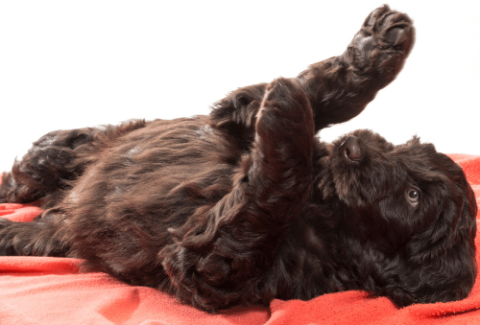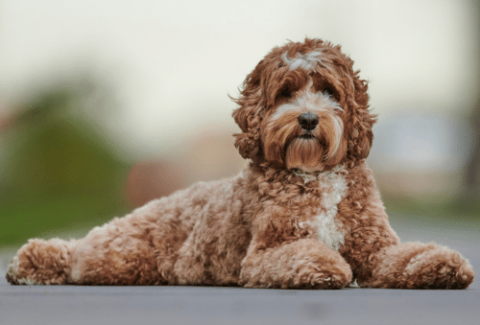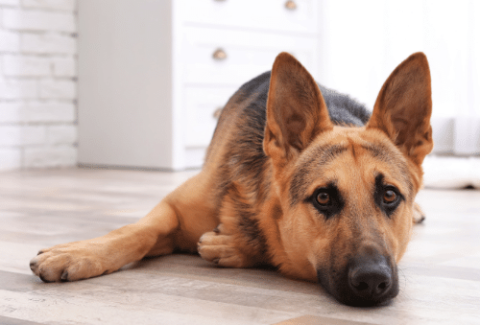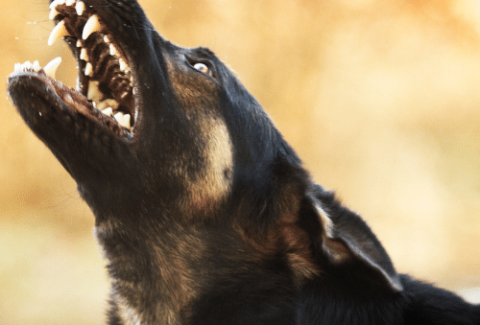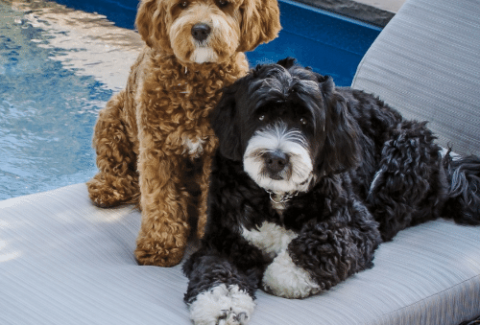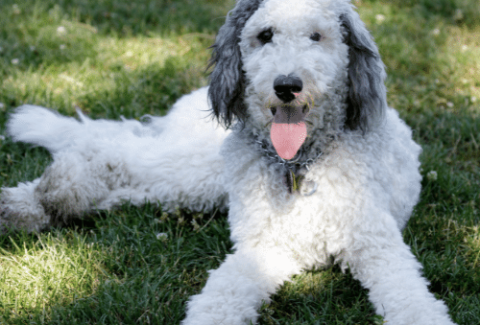Can Australian Shepherds Live In Apartments?
August 15, 2021 2021-08-24 4:39Can Australian Shepherds Live In Apartments?
Australian Shepherds are well known for their high-energy and playful nature. They are a hugely popular breed and many people aspire to own Aussies – but we don’t all live in big homes with gardens. So, as a prospective owner, you may be wondering, can Australian Shepherds live in apartments – are they good indoor dogs?
The short answer is yes. However, you will have to work extra hard to make sure that all of their needs are met. Let’s take a look at exactly how to do that.
Table of Contents
How much space does an Australian Shepherd need?
As medium-sized dogs with big personalities, Australian Shepherds are best suited to living in medium-large sized homes with some kind of outdoor space. That said, smaller homes and apartments aren’t necessarily a no-no, just as long as you can get them outside for toilet time and provide sufficient exercise and play.
No matter where you live, it’s also important that your dog has their own space for things like sleeping, eating, and a place to keep their toys.

Are Australian Shepherds too hyper for apartments?
Shepherd breeds are naturally hyperactive because of the job that they were originally bred to do. Puppies will gradually get better at regulating their energy as they mature from puppyhood, but they will remain active dogs for their entire lives. However, your Aussie doesn’t necessarily need tonnes of space at home to expend their energy, so long as you can get them out for nice, long walks every day.
How much exercise does an Australian Shepherd need?
How much exercise your Aussie needs will depend on their age, but generally, a healthy adult Australian Shepherd needs at least two hours of exercise every day. An Aussie puppy generally needs 5 minutes of exercise per month of their life, and elderly Aussies will need to wind down as they get older.
Their exercise is best split into two or three walks per day. It’s also a good idea to vary walks by going to different places and incorporating different things into them, like running, hiking, swimming, and playing games of fetch.
You should always stop to interact with friendly dogs and people, as well. Aussies are naturally very social dogs, and social interactions can be just as fulfilling and tiring as exercise and play.
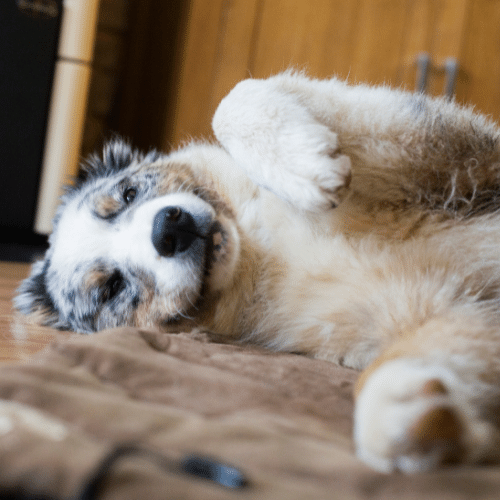
Do Australian Shepherds get bored in apartments?
Australian Shepherds are highly intelligent dogs, and with this comes a low tolerance for boredom. However, a lack of space shouldn’t directly cause boredom, so long as they have enough room to play and someone to play with.
Only an underworked, un-challenged Aussie will get bored. However, when this happens, it can lead to separation anxiety and destructive behaviors out of frustration. If a bored, destructive Aussie is left alone for many hours at a time, you will have to deal with serious behavioral issues.
These behaviors can include biting themselves, destroying furniture and household items, going to the toilet indoors, and excessive barking and whining. This is especially likely to occur with shepherd breeds because they are naturally intense and have a tendency to form compulsive behaviors when they’re stressed. To avoid this, you must make sure your Aussie’s body and mind are sufficiently exercised.
If an Aussie’s exercise needs are met, he will enjoy to snuggle up with his owner on the couch as well!
Preventing boredom in Australian Shepherds
Exercising the mind is just as important, if not more important, than physical exercise for shepherd breeds. Their minds need to be challenged and entertained on a daily basis with fun games and toys. So, get creative with your space!
Aussies love to play games that exercise their natural instincts like fetch and chase, so make sure to incorporate some of these into daily life. You could even set up a mini obstacle course in your apartment using books and chairs to test out those agility skills or teach them a new trick with our training courses for dogs.
Hide and seek is a great game to entertain and bond with your dog. To play hide and seek, get your dog to sit and wait while you hide somewhere in the apartment. Then, call them to come and find you. You can also hide their favorite toy or some treats.
The cup game is another popular game that really challenges doggie minds and tires them out quickly. To play the cup game, place two empty cups side by side and upside-down on the floor in front of your Aussie, then put a treat underneath one of them. Finally, switch the cups around and ask your dog to find the treat. To increase the difficulty, switch them twice or add another cup!
Toys are another great way to challenge your Aussie. Invest in a few mentally stimulating toys like puzzle toys, puzzle feeders, and treat-dispensing balls. Toys that stimulate the senses with different sounds, textures, and lights are also great, especially for youngsters and Aussies with disabilities.
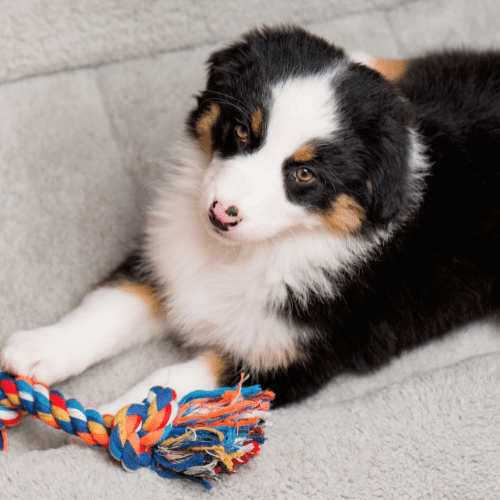
Is training an Aussie more difficult in an apartment?
Training a dog can be more difficult in an apartment than in a house, but this doesn’t mean it’s impossible. The biggest difference in dog training in an apartment vs a house is toilet training. It’s a lot harder when you can’t rush your dog out of the door and into a garden!
Make sure you get your Aussie into a good toilet routine, by feeding them and taking them outside around the same times every day.
Super young pups tend to need to go to the toilet every hour or two, so take them out every couple of hours at the most – and around 15 minutes after eating. This should decrease by roughly an hour for every month of their life until they are 4-6 months old, by which time they should only need to go 3-5 times per day.
When taking your pup out to go potty, say the associative words that you want them to learn when they do their business, and always praise them afterward. If a surprise toilet attempt does occur – try your best to get them outside, but don’t punish your pup if they have an accident indoors.
Invest in some pee pads for emergencies and start using a negative verbal signal, like the word “no”. Use it with a negative action, such as ignoring your pup and crossing your arms, to communicate that you are not happy with their behavior.
Another important area of apartment training is barking. Aussies tend to be vocal, communicative dogs, particularly when they’re having fun. This isn’t normally a problem unless it’s excessive, but if you live in an apartment, it can cause problems with the neighbors. To stop your Aussie from barking too much, quit playing whenever the barking starts, to show them that barking equals game over.
Unfortunately, hyper-intelligent breeds like Aussies are also more prone to experiencing separation anxiety, which can be even more difficult than usual when living in a smaller space. However, it can be prevented (and tackled) by gradually building their independence.
Encourage solo-play with treat-dispensing toys and practice being apart by leaving the apartment for small amounts of time. Slowly build up the time that you are gone each time, and never make a big deal about leaving, but always make a fuss of them when you come back.
Don’t react angrily to destructive behaviors, as the attention can encourage them. Instead, show them that this kind of behavior gets no attention and try confining them to a smaller, safe area of the home until it calms down. If their anxiety is severe, you could even invest in some anti-anxiety products to aid your training, like herbal supplements and plug-in diffusers.
The bottom line
If you live in an apartment, you may have to put in a little extra effort with your Aussie during training and playtime. However, every dog is a commitment, and Australian Shepherds make the best, brightest, most fun companions. If you are willing to put in the time, you will not regret it!
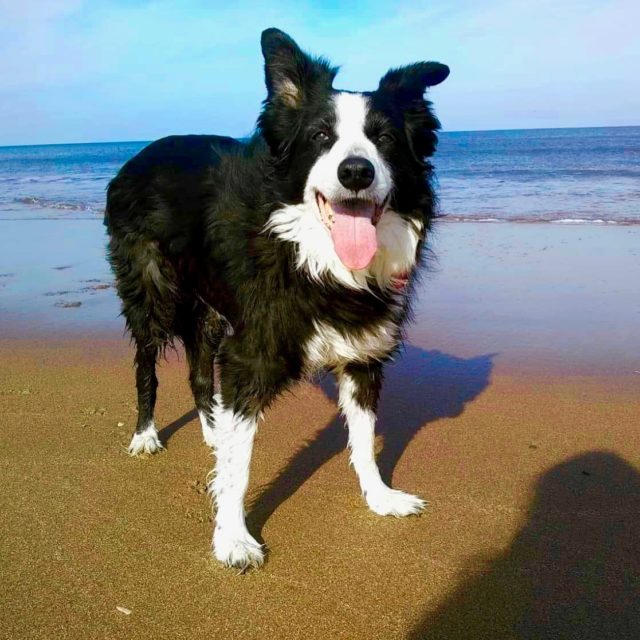
Laura
Writer and Border Collie Mom
Laura is a dog-lover with an animal-related degree and plenty of hands on experience. She is passionate about dog health & welfare and wants to arm owners with all of the essential info they need!
Steffi Trott
Related Posts
Are Labradoodles High-Maintenance?
At what age do Labradoodles calm down?
Are Pomeranians Good for First-Time Dog Owners?
Are German Shepherds Hypoallergenic?
Are German Shepherds Smart?
Are German Shepherds Vocal?
Are German Shepherds Good With Kids?
Do Bernedoodles like Water?
Do Bernedoodles Like Cats?
How Long Can Australian Shepherds Be Left Alone?
Check out our effective and affordable online dog training courses!
-
Sale Product on sale
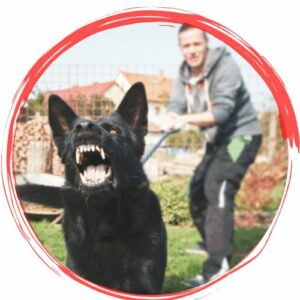 Tackling Reactivity Bundle
Tackling Reactivity Bundle
MONEY BACK GUARANTEE$564.00$49.00 -
Sale Product on sale
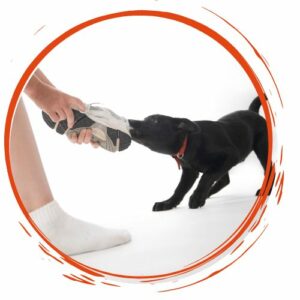 Perfect Obedience Bundle
Perfect Obedience Bundle
MONEY BACK GUARANTEE$349.00$49.00 -
Sale Product on sale
 Ultimate Puppy Bundle
Ultimate Puppy Bundle
MONEY BACK GUARANTEE$416.00$49.00 -
Sale Product on sale
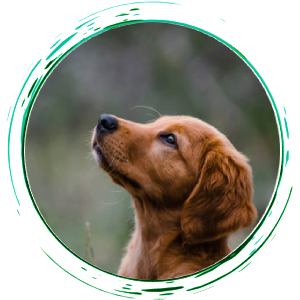 The Perfect Focus Bundle
The Perfect Focus Bundle
MONEY BACK GUARANTEE$445.00$169.00 -
Sale Product on sale
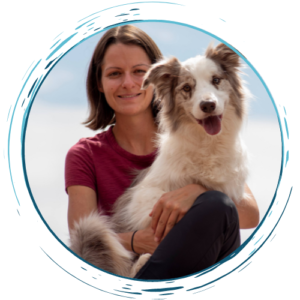 Ultimate Masterclass Bundle
Ultimate Masterclass Bundle
MONEY BACK GUARANTEE$2,213.00$499.00

